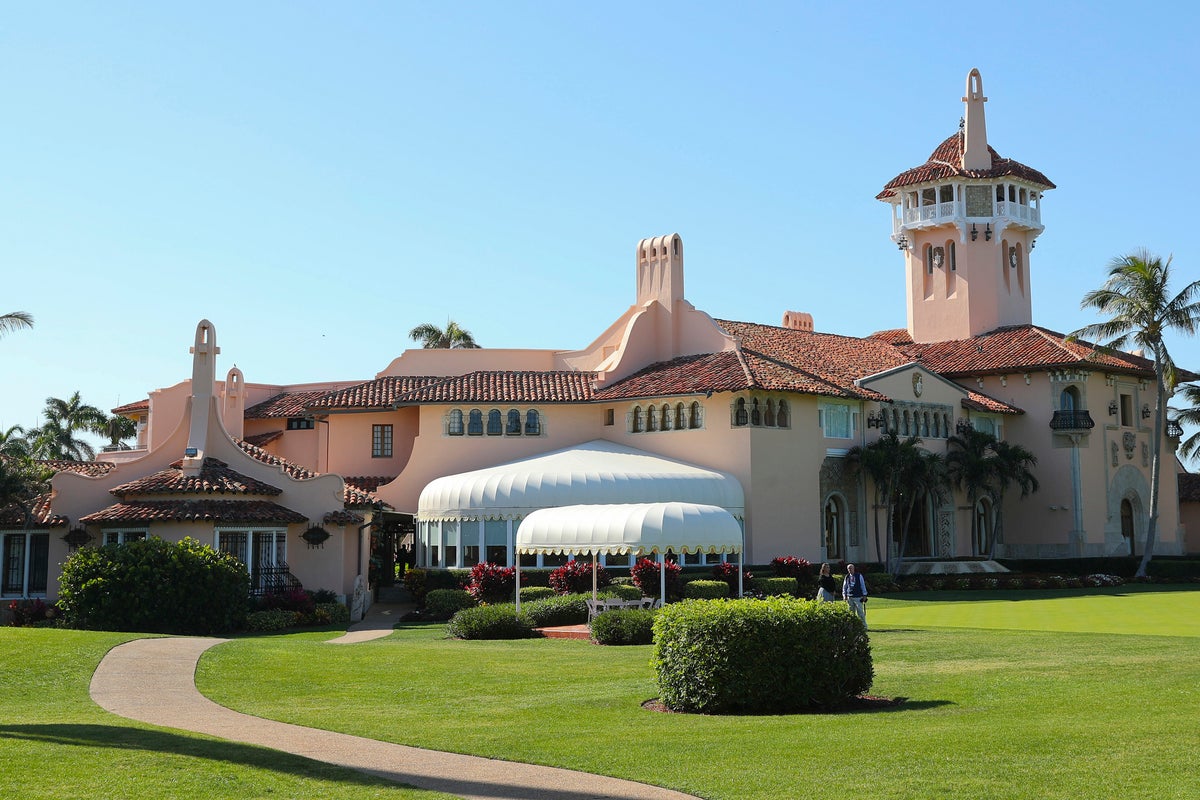
Federal agents investigating former president Donald Trump’s hoarding of classified documents subpoenaed more than six months of surveillance footage from Mar-a-Lago, the Palm Beach, Florida mansion turned private club where the ex-president maintains his primary residence and office.
According to a redacted version of the affidavit agents submitted to a Florida magistrate judge when seeking a warrant to search Mr Trump’s property, agents served a grand jury subpoena to the Trump Organization for “any and all surveillance records videos images, photographs, and/or CCTV from internal cameras” taken from 10 January 2022 to when the subpoena was served on 24 June, approximately three weeks after Mr Trump’s attorneys showed investigators the storage room where the ex-president kept boxes of documents which he’d removed from the White House before his term expired in January 2021.
The affidavit also revealed that the Trump Organization provided the surveillance data to the FBI in the form of a hard drive on 6 July, approximately one month before agents applied for the warrant to search the ex-president’s property.
A more heavily redacted version of the affidavit was made public last month, but prosecutors requested permission to reveal more of the document because Mr Trump’s attorneys publicised the June subpoena in other documents filed with the court.
The CCTV footage from the storage room could play a significant role in any decision to charge Mr Trump or anyone in his employ with crimes stemming from his decision to keep documents with classification markings long after his time as president had come to a close, or from his refusal to return the documents when asked.
In a separate filing, the Department of Justice has said investigators have “developed evidence that government records were likely concealed and removed from the Storage Room and that efforts were likely taken to obstruct the government’s investigation”.
According to court documents, FBI agents found over 10,000 non-classified government documents spread across scores of boxes when they searched the twice-impeached ex-president’s home and office on 8 August.
Agents also discovered more than 100 “unique documents with classification markings”, including three stored in Mr Trump’s desk. Classification levels ranged from confidential – the lowest level of classification in the US system – to the highest, top secret.
Currently, prosecutors are barred from using any of the recovered documents to further their criminal investigation into the ex-president because a federal judge who he appointed to the bench has ordered them to be reviewed for privilege by a third-party special master.
The Justice Department has asked the judge to lift the hold on use of the 100 documents which have been marked as classified, citing ongoing damage to national security if FBI agents are not allowed to participate in a review of the documents.
“The government and the public unquestionably have an interest in the timely enforcement of criminal laws, particularly those involving the protection of highly sensitive information, and especially where, as here, there may have been efforts to obstruct its investigation,” prosecutors said in a court filing on Tuesday.







